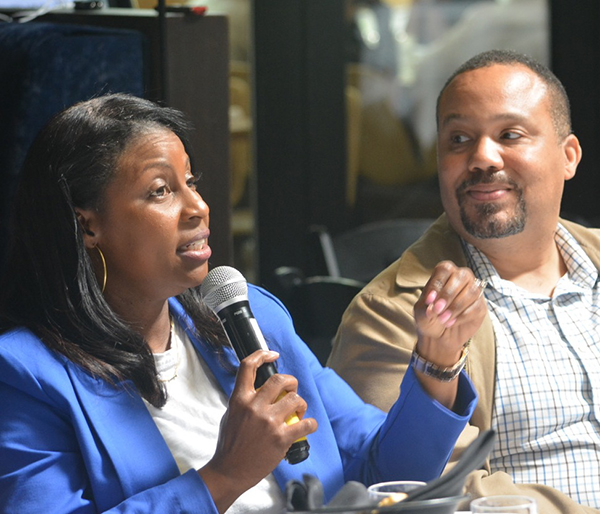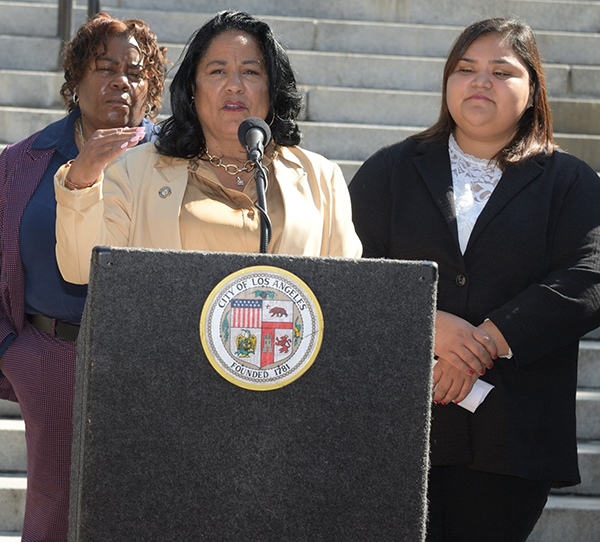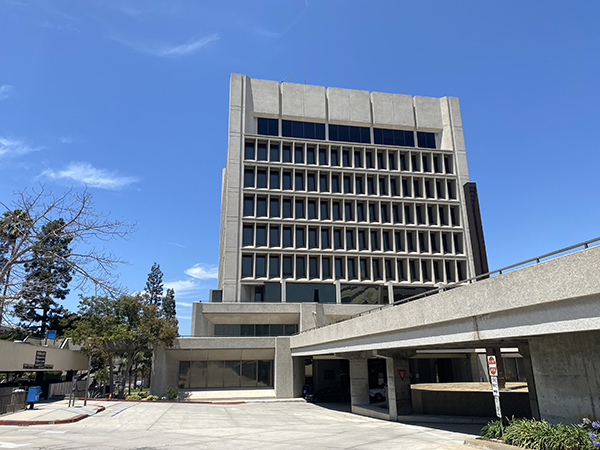By Earl Ofari Hutchinson
Contributing Columnist
Los Angeles Mayor Karen Bass is plainly worried.
She had just seen the new report from the Los Angeles Homeless Services Authority that homelessness has surged to its highest level ever in L.A. Bass bluntly admitted “We do not have a way of preventing homelessness.”
Her admission was both sobering and frightening. Bass has repeatedly said that the homeless crisis is by far L.A.’s number one problem. She has done everything humanly and administratively possible to tackle the problem. But sadly, as she noted, it continues unabated.
This is a bitter pill to swallow. But the blunt fact, as I’ve written in the past about the homeless crisis, is that there are crucial, near intractable reasons, why it continues to be the chronic crisis that it is.
First, let’s debunk a popular myth. The cause, as many continue to repeat, is not a horde of down and out, mentally challenged, drug and alcohol abusers, that flood the streets.
Certainly, many of the homeless fit into that category. But many don’t. Homelessness is not about wayward, impoverished people. It’s a deep structural problem.
It’s fueled in large part by unchecked, unaffordable high-end development. Drive down any Los Angeles street and you will see yet another apartment or townhouse development going up. There’s a steep price for that.
These new projects displace thousands of moderate- to lower-income people and virtually consign many of them to the streets. The unchecked development is facilitated by the L.A. City Council that has virtually given the company store away to high-end developers.
While there is the minimal requirement that some set aside a small number of units as “affordable,” that’s a small price to pay for getting their high-end project approved.
One of many sobering experiments to end homelessness confirmed how dogged the problem is. In 2021, the federal government in Canada issued a report that after spending billions in public money to wipe out homelessness in the country. They didn’t know if the money made any dent in the problem.
The government spending aimed to cut chronic homelessness in Canada in half by 2028. That didn’t happen.
The takeaway from this experience was that simply tossing money at the problem of homelessness, no matter how much and how well intentioned, is not in and of itself the answer. The glaring fuzziness about whether tossing money at the problem accomplished anything sparked much finger pointing among Canadian politicians.
Some accused the government of doing nothing to rein in the massive construction of high-end luxury and upper middle class housing development projects that have dumped thousands of persons on Canada’s streets. This failure to put any appreciable checks on housing development that prices all but the wealthy and well-to-do out of the housing market guarantees that the problem of homelessness will only get worse, no matter how much public money the government spends to try to get a handle on the problem.
The Canadian dilemma again is no different than that other U.S. cities face when it comes to getting a handle on homelessness. Nowhere is that more evident than in L.A.
Homelessness has been the runaway number one public policy worry of L.A. officials for now almost two decades. Every mayor and every city official has made promises and projected solutions to get rid of the tent encampments that are tantamount to a city of the dispossessed within a city in Los Angeles.
Mayor Bass has spent nearly all her first months in office proposing solutions, big funding increases and implementing some initial action efforts to get more people off the streets. But even before Bass took office, L.A. official’s spent tens of millions of taxpayer dollars, tossed up a few encampments and makeshift housing here and there, and repeatedly demanded taxpayers cough up millions on the pledge that their dollars would be used to end homelessness. All the while many of L.A. streets, parks, freeway sidings and underpasses, look like Kolkata, India.
Bass’ public pledges to tackle the crisis problem have taken a realistic and comprehensive approach to the problem. But it’s a long, hard, uphill process. There are no quick fixes. Bass understands that.
It will take a mix of ramped-up approaches — strategic spending, land-use changes, housing subsidies and the expansion of support services — to dent the problem.
The monumental challenge is to craft and push the City Council to enact a solid land-use plan to rein in upscale development. That means taking checkbook politics out of the development process while ensuring the building and subsidizing of more affordable housing.
It’s a daunting task given the outsized power of corporate developers to get just about anything they want from the L.A. City Council with minimal checks and controls. The latest survey on the homeless surge shows what anyone with eyes can see and that’s that homelessness will be here to stay without a total commitment to not just put up new housing but housing that people can actually afford.
Earl Ofari Hutchinson is an author and political analyst. He is the host of the weekly Earl Ofari Hutchinson Show on KPFK 90.7 FM Los Angeles and the Pacifica Network Saturdays at 9 a.m.










